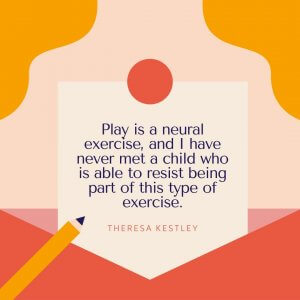
Let’s Play!
A free and essential ingredient for children's development.
For the last eight weeks, families have been ‘stuck’ inside due to Corona Virus. It has been a juggle for many parents to manage the difficult balance between working from home, parenting and supporting the online learning of our children. Many are worried that their children might ‘fall behind’ academically or are concerned that their role as parent and caregiver is being mixed up when they also try to fill the role of teacher. There is, however, one thing we can all easily do whilst in ‘lock-down’ and beyond. It is an activity that supports development, connection and learning, and it is free for all. What are we talking about? Play.
 Play is the international language of children, it is their work and their right and is relevant for children of all ages including infants. When children from diverse cultural backgrounds come together we see that they communicate through play spontaneously and in ways that defy the language barriers adults might face.
Play is the international language of children, it is their work and their right and is relevant for children of all ages including infants. When children from diverse cultural backgrounds come together we see that they communicate through play spontaneously and in ways that defy the language barriers adults might face.
Although play might be spontaneous, we believe it worthy of further consideration by adults and encourage thinking about play more seriously. Play is used by children to explore everything about their world, the physical environment, relationships, and to understand themselves. When children experience periods of toxic stress, family violence or other forms of abuse, we have found that they often miss out on experiences of play. In therapy, clinicians regularly find that, through play, children endeavour to make sense of their traumatic experiences.
In addition to being important for healthy development and helpful for building connection, play is also considered a Children’s Right.
Article 31 the United Nations Convention on the Rights of the Child states:
“State Parties recognise the right of the child to rest and leisure, to engage in play and recreational activities appropriate to the age of the child and to participate freely in cultural life and the arts”.
Play is also linked to other articles in the convention such as Article 24 which informs us of the importance of play and the link to a child’s healthy life and Article 29 which focusses on the child’s right to education in which play has a role.
The field of neuroscience tells us that play is the key to many neurobiological, physical and developmental benefits for the child. The Foundation has used various forms of play, including play therapy, in our work with children and families for more than thirty years. If you are interested in learning more about our play-based work, including our therapeutic dolls you can click here.
What is the role of the adult in a child’s play?
In a time where many parents and carers are concerned about returning to the hectic pace of pre-COVID19 family schedules, it might be comforting to know that there are neurobiological benefits to not being structured to the hilt! As adults, we can intentionally provide time and space for children to enjoy unstructured play, where they can be free to explore and create. We do not need to specify how play takes place. Children’s play can be loud and involve other children or a child may prefer to play alone and quietly. Sometimes adults are invited into the child’s play and when we are, it is a great opportunity to follow the child’s lead in this activity and let them take the game where they would like it to go.
Looking at play as a child’s right and from a neurobiological perspective provides new reasons for being playful, taking play more seriously, and supporting parents to play with their children.
We encourage all parents, carers and professionals to prioritise play in the days, weeks and months ahead.
